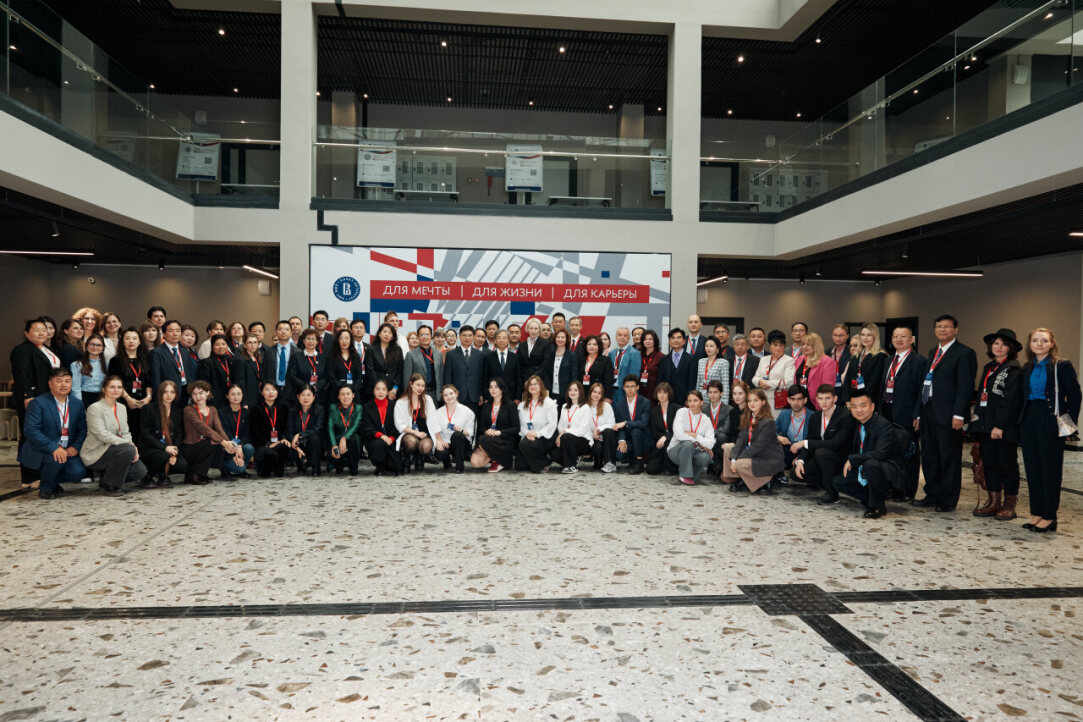
Generation Z's Digital Revolt: HSE Examines a Million Messages from Nepali Social Media
In September 2025, young people in Nepal took to the streets, armed not with party slogans but with online chats. Researchers at HSE analysed a million messages on a Discord server to understand the mechanics of youth protest. Experts discussed why the protesters identified themselves as Generation Z and what lessons can be drawn from this experience.

Russian–Chinese Forum at HSE University–St Petersburg Provides Platform to Discuss Best Practices of AI Use
On September 23, the HSE University–St Petersburg Rope Shop Building hosted the Second Russian–Chinese Forum 'Culture of Education' and the annual meeting of the Russian–Chinese Association of Applied Research Institutes. More than 100 participants from leading non-government Chinese universities and representatives of 15 Russian universities discussed the integration of artificial intelligence in education and industry.

Scientists Identify Personality Traits That Help Schoolchildren Succeed Academically
Economists from HSE University and the Southern Federal University have found that personality traits such as conscientiousness and open-mindedness help schoolchildren improve their academic performance. The study, conducted across seven countries, was the first large-scale international analysis of the impact of character traits on the academic achievement of 10 and 15-year-olds. The findings have been published in the International Journal of Educational Research.

HSE Explores the Needs of Deaf People
World Deaf Day is traditionally celebrated on the last Sunday of September. This year, the HSE Faculty of Social Sciences joined the celebration and, together with the Moscow branch of the All-Russian Society of the Deaf (VOG Moscow), launched a study of the needs of hearing-impaired Moscow residents in terms of social services and accessible environments.

‘A Bridge Connecting Russia and Africa’
The HSE Centre for African Studies has marked its fifth anniversary. It was established to support Russian companies and government bodies in their engagement with countries across the continent and, over the years, has proved its effectiveness and uniqueness. A ceremonial event to mark the centre’s anniversary was held at HSE’s Cultural Centre.

Critique of Obscure Reason: Artificial Intelligence in the Perception of Mathematicians
Mathematicians at HSE University believe that there is no need to fear losing jobs because of the widespread use of AI, while at the same time they warn against uncritical acceptance of works and projects prepared with its help. AI, however, can be a useful tool in research, creating models and processing large volumes of information.

‘I Wanted to Sing, but Was Asked to Organise the Voting System’
The first Intervision song contest recently came to an end in Moscow. The winner was the Vietnamese entrant, Đức Phúc. The voting system for the contest was developed by Fuad Aleskerov, a renowned mathematician, expert in game theory and decision-making, and Distinguished Professor at HSE University. He shared the details with the HSE News Service.

‘Himalaya Calling’: Dean of St Petersburg School of Social Sciences Speaks at Global Summit at UPES
Alexander Sorokin, Dean of the School of Social Sciences at HSE University–St Petersburg, was a key speaker at the Himalaya Calling global summit at UPES University in India.

Parion Mission: Hetaera’s Krater, Ancient Urban Technology, and Digital Archaeology
On September 15–16, 2025, the HSE Centre of Classical and Oriental Archaeology at the Institute for Oriental and Classical Studies, Faculty of Humanities, held an international conference marking the fifth anniversary of excavations carried out by HSE archaeologists as part of the Parion Mission of Ondokuz Mayıs University, Samsun, at the agora of Parion.

Similar Comprehension, Different Reading: How Native Language Affects Reading in English as a Second Language
Researchers from the MECO international project, including experts from the HSE Centre for Language and Brain, have developed a tool for analysing data on English text reading by native speakers of more than 19 languages. In a large-scale experiment involving over 1,200 people, researchers recorded participants’ eye movements as they silently read the same English texts and then assessed their level of comprehension. The results showed that even when comprehension levels were the same, the reading process—such as gaze fixations, rereading, and word skipping—varied depending on the reader's native language and their English proficiency. The study has been published in Studies in Second Language Acquisition.

